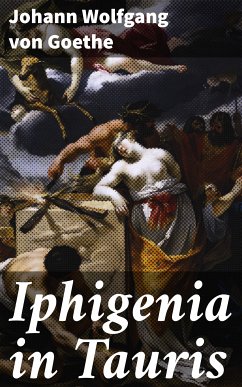In "Iphigenia in Tauris," Johann Wolfgang von Goethe reinterprets the ancient Greek myth of Iphigenia, exploring themes of fate, sacrifice, and redemption through a neoclassical lens. The play, composed in blank verse, captures the emotional gravity and psychological complexity of its characters, particularly Iphigenia herself, who grapples with notions of duty and familial loyalty while yearning for freedom. Goethe's work reflects the Enlightenment'Äôs emphasis on reason and moral integrity, positioning the narrative within a rich literary context that bridges classical tradition and modern sensibilities. Goethe, a titan of German literature, drew inspiration from his profound engagement with classical texts and humanistic ideals. Having traveled extensively and familiarized himself with diverse cultural philosophies, he was able to convey the universal struggles of the human condition in "Iphigenia in Tauris." This play is a culmination of his artistic maturation, showcasing his mastery of language and form while reflecting the tensions between irrationality and reason, a defining feature of his oeuvre. For readers seeking a profound exploration of human emotion intertwined with classical themes, "Iphigenia in Tauris" is an indispensable work. It not only exemplifies Goethe's brilliance but also invites contemporary readers to ponder timeless questions of identity and moral duty, making it a compelling addition to any literary collection.
Dieser Download kann aus rechtlichen Gründen nur mit Rechnungsadresse in A, B, BG, CY, CZ, D, DK, EW, E, FIN, F, GR, H, IRL, I, LT, L, LR, M, NL, PL, P, R, S, SLO, SK ausgeliefert werden.









